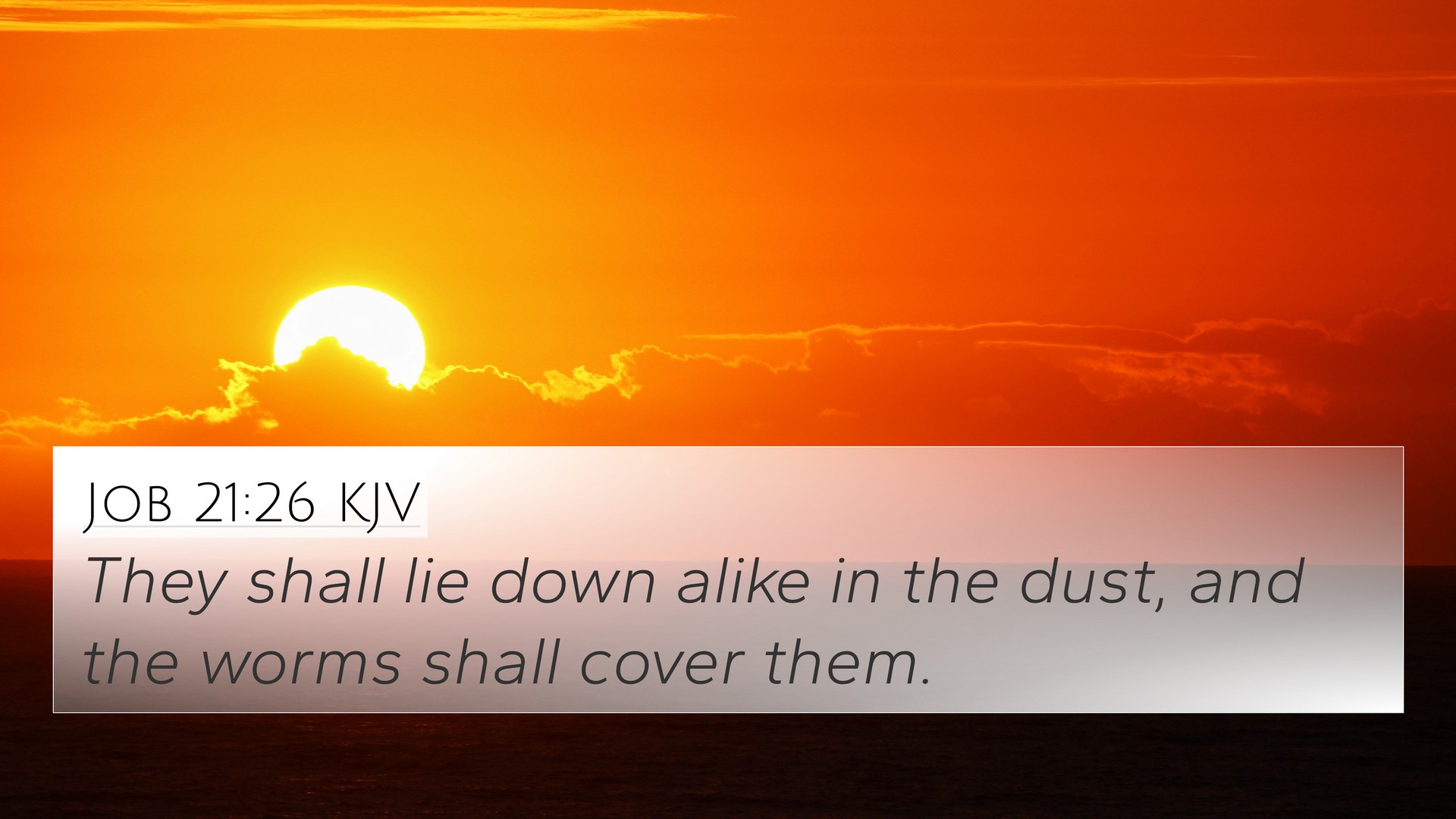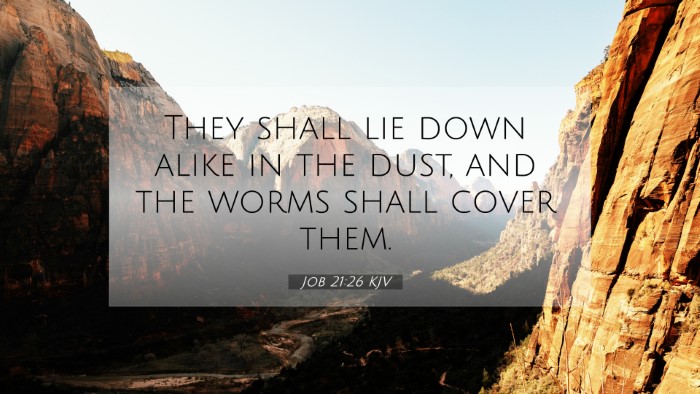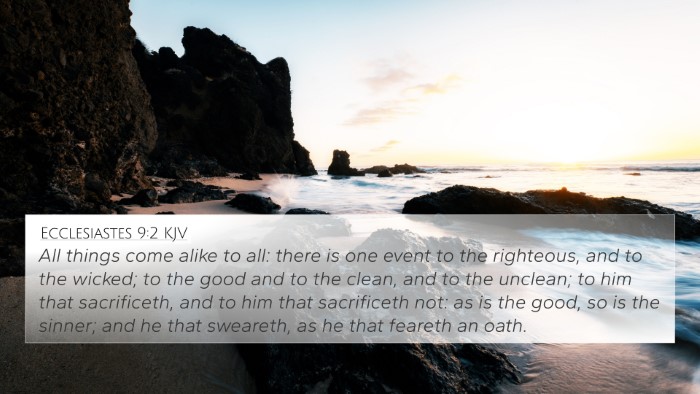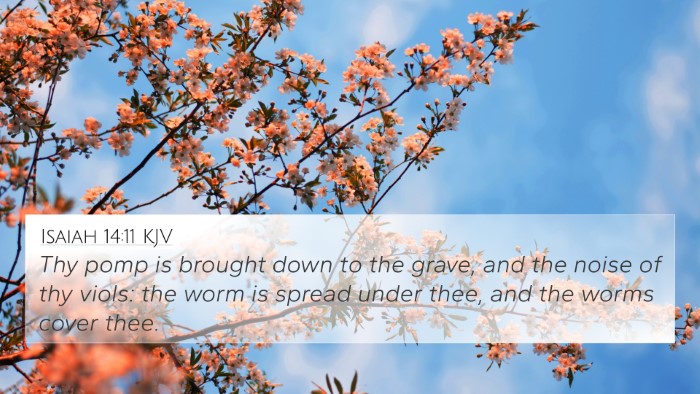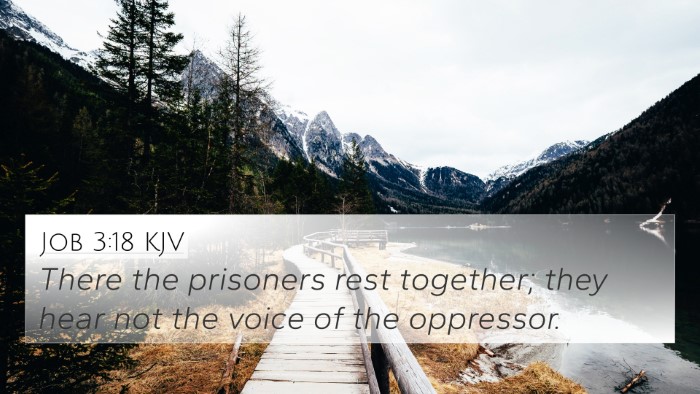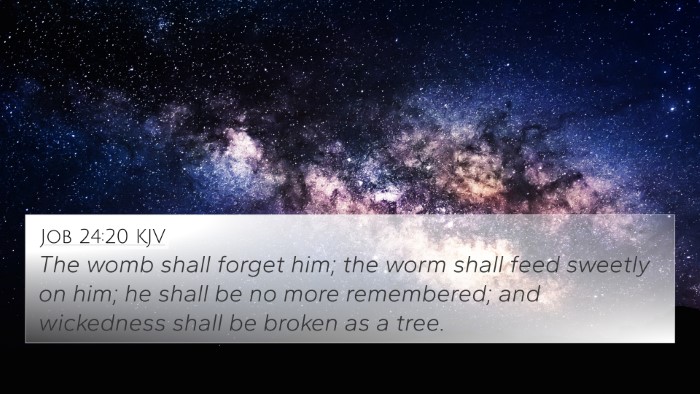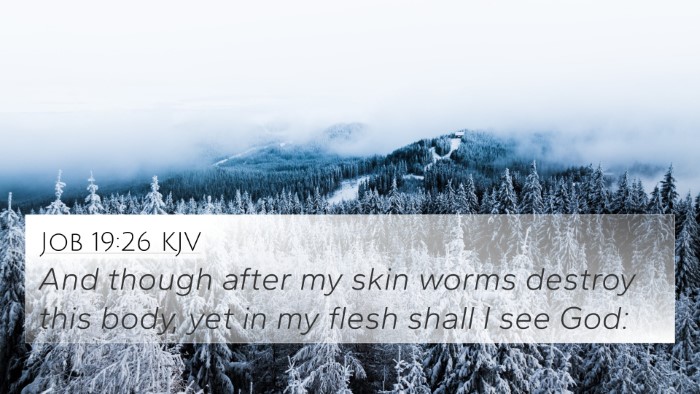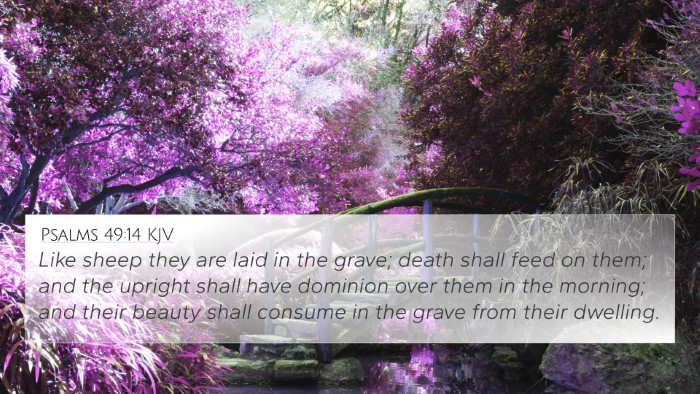Understanding Job 21:26
Job 21:26 states, "They lie down alike in the dust, and the worms cover them." This verse is found in the context of Job's discourse, where he confronts the simplistic idea of retributive justice espoused by his friends, which is a recurring theme in the book of Job.
Background Context
The Book of Job explores profound themes such as suffering, justice, and the human relationship with God. Job, a righteous man, experiences great suffering and engages in deep theological discussions with his friends who argue that his suffering must be a result of his sin. Job refutes their claims by illustrating the often unjust reality of life.
Interpretation of Job 21:26
This verse serves as a poignant reminder of mortality, indicating that death ultimately equalizes all, regardless of one’s social status, virtue, or vice. It emphasizes the inevitability of death and the reality that we all return to the earth in the same manner, highlighted by the imagery of dust and worms. Job uses this imagery to challenge the belief that the wicked are always punished in this life.
Insights from Commentaries
- Matthew Henry: Henry emphasizes the equalizing nature of death. He explains that both the righteous and the wicked end up in the same state post-mortem, highlighting that material conditions do not determine one's ultimate fate.
- Albert Barnes: Barnes presents the argument that Job here points to the stark reality of death as a common end. He suggests that this verse serves to remind us that earthly success or suffering does not dictate one's standing before God after death.
- Adam Clarke: Clarke reflects upon the idea of life's temporality, underscoring that regardless of how one lived their life, death comes to all. He affirms that this speaks to the vanity of life and the futility of human pride in the face of death.
Thematic Connections
This verse connects deeply with various themes in the Bible regarding death and justice. The following biblical references enhance the understanding of this theme:
- Ecclesiastes 3:20 - "All go to the same place; all come from dust, and to dust all return." This verse echoes the sentiment of human mortality.
- Psalm 49:14 - "Like sheep they are laid in the grave; death shall feed on them." This reinforces the idea of death as the great equalizer.
- Job 14:1-2 - "Man who is born of a woman is of few days and full of trouble. He comes out like a flower and withers..." It illustrates the transient nature of life.
- Luke 12:16-21 - The parable of the rich fool, which teaches about the futility of accumulating wealth without regard for God's perspective on life and death.
- Romans 3:23 - "For all have sinned and fall short of the glory of God." This speaks to the universal condition of humanity, regardless of status.
- Hebrews 9:27 - "And as it is appointed for men to die once, but after this the judgment." This underlines the inevitability of death followed by divine judgement.
- 1 Corinthians 15:22 - "For as in Adam all die, so also in Christ shall all be made alive." This connects the idea of death with resurrection and hope in Christ.
Application and Reflection
The implications of Job 21:26 are vast, calling readers to reflect on their lives and the ultimate fate that awaits all humanity. It serves as a sobering thought concerning the values we pursue and the legacy we leave behind. Job's assertion encourages believers to shift their focus from earthly gains to eternal significance.
Cross-Referencing Insights
In a more comprehensive study, cross-referencing Bible verses such as Ecclesiastes 9:2-3 shows how both the righteous and the wicked share the same fate in death. This builds on the theme of Job's assertion that life's circumstances do not dictate one's spiritual standing. Here are additional considerations for study:
- Comparative Bible Verse Analysis: Analyze how other books, such as Proverbs and Ecclesiastes, speak to life's futility and the certainty of death.
- Thematic Bible Verse Connections: Explore how death and justice are treated in both Old and New Testaments.
- Inter-Biblical Dialogue: Understand how the message of Job connects with passages in Revelation regarding the final judgment.
Conclusion
Job 21:26 serves not only as a reflection on mortality and the nature of life but also as a challenge to the theological assumptions of retributive justice. By integrating insights from multiple commentaries and cross-referencing related scriptures, one gains a deeper understanding of this profound biblical truth that resonates throughout Scripture.
As we engage in a Bible cross-reference guide or use various tools for Bible cross-referencing, we enrich our understanding of complex themes such as mortality, divine justice, and human value.
